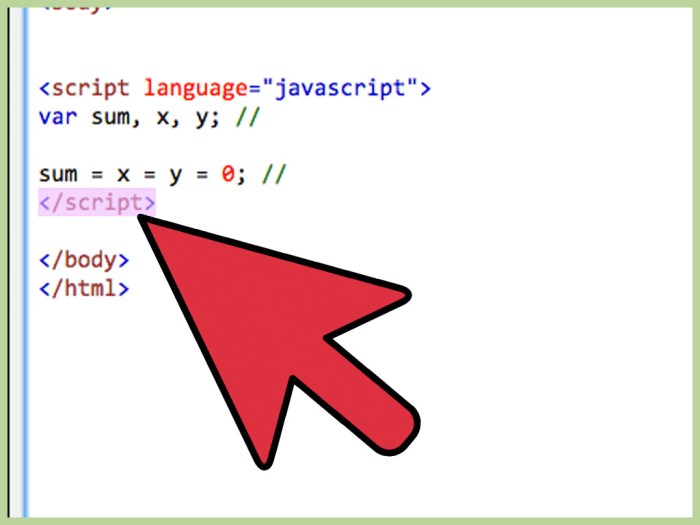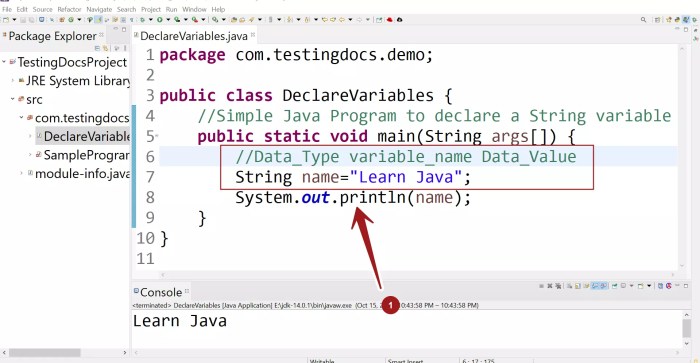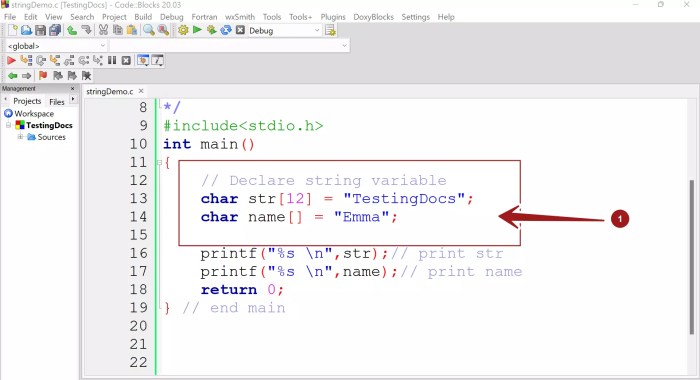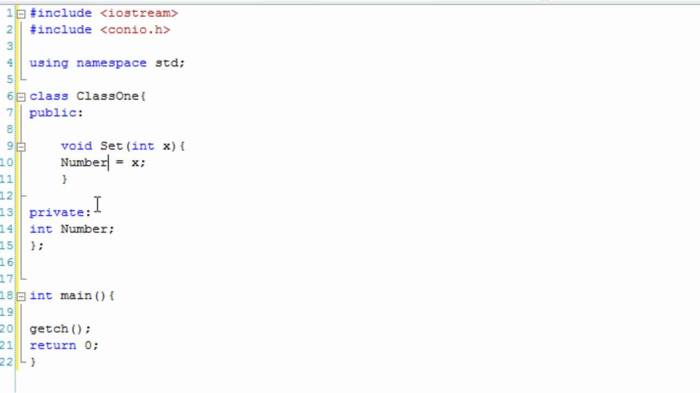Declare a string variable named mailing address – Declaring a string variable named mailing address is a fundamental aspect of programming that involves assigning a specific memory location to store a sequence of characters. This guide delves into the intricacies of declaring string variables, exploring data types, variable scope, initialization, and string manipulation functions.
Understanding how to declare and manipulate string variables is crucial for effectively managing and processing textual data in various programming applications.
Variable Declaration Syntax: Declare A String Variable Named Mailing Address
In programming, a variable is a named location in memory that stores a value. To declare a string variable, you use the following syntax:
string variableName;
For example, to declare a string variable named “mailingAddress”, you would write:
string mailingAddress;
Data Types

A string variable can store a sequence of characters. The data type of a string variable is “string”. To assign a string value to a string variable, you use the assignment operator (=).
mailingAddress = "123 Main Street, Anytown, CA 12345";
Variable Scope
The scope of a variable is the part of the program where the variable can be accessed. A variable declared within a specific block of code (such as a function or a loop) is only accessible within that block.
For example, if you declare the “mailingAddress” variable within a function, it can only be accessed within that function.
Variable Initialization
It is good practice to initialize variables with a default value when they are declared. This helps to prevent errors caused by uninitialized variables.
To initialize the “mailingAddress” variable with a default value, you can use the following syntax:
string mailingAddress = "";
String Manipulation Functions
There are many string manipulation functions available in programming languages. These functions can be used to modify the value of a string variable.
Some common string manipulation functions include:
- length() – returns the length of the string
- toUpperCase() – converts the string to uppercase
- toLowerCase() – converts the string to lowercase
- replace() – replaces a substring with another substring
For example, to get the length of the “mailingAddress” variable, you can use the following code:
int length = mailingAddress.length();
Input and Output Operations

You can use the input() function to get user input and store it in a string variable.
For example, to get the user’s mailing address and store it in the “mailingAddress” variable, you can use the following code:
mailingAddress = input("Enter your mailing address: ");
You can use the print() function to output the value of a string variable.
For example, to output the value of the “mailingAddress” variable, you can use the following code:
print("Your mailing address is: " + mailingAddress);
Error Handling

There are a number of errors that can occur when working with string variables. These errors can be caused by invalid input, invalid operations, or other factors.
It is important to handle errors properly to prevent your program from crashing.
One way to handle errors is to use the try-catch block.
try // code that may throw an error catch (Exception e) // code to handle the error
Best Practices

Here are some best practices for declaring and using string variables:
- Use descriptive variable names.
- Choose the appropriate data type for your variable.
- Initialize variables with a default value.
- Use string manipulation functions to modify the value of a string variable.
- Handle errors properly.
Common Queries
What is the syntax for declaring a string variable named mailingAddress?
In C++, the syntax is: string mailingAddress;
How do I assign a value to the mailingAddress variable?
You can assign a value using the assignment operator (=): mailingAddress = “123 Main Street”;
What is the scope of the mailingAddress variable?
The scope of mailingAddress is limited to the block of code in which it is declared, unless explicitly declared otherwise.